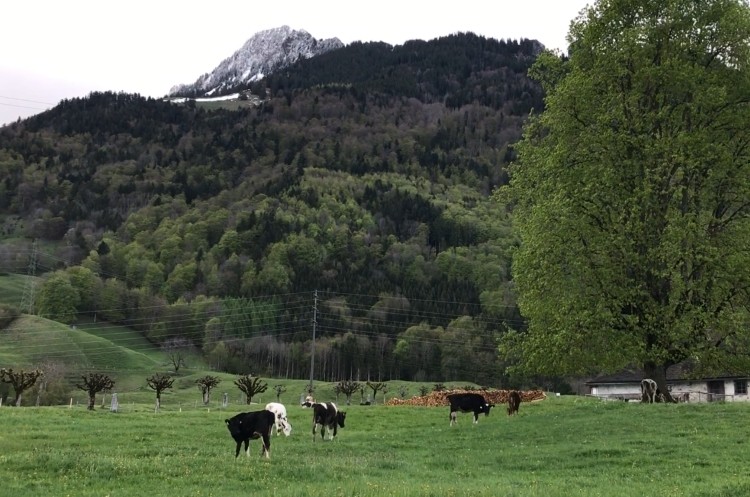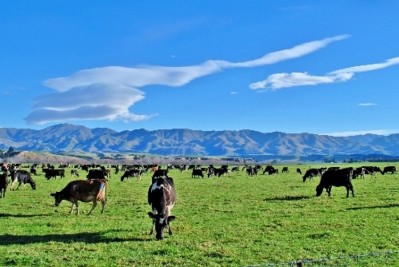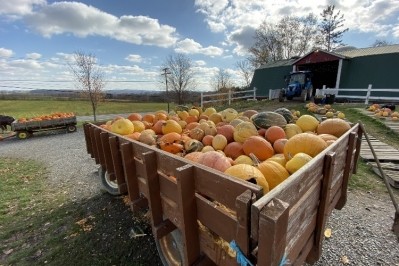Garlic in cow feed keeps gases down – and milk yields up

About 15% of greenhouse gas emissions come from livestock and a third of that is from methane, which traps 25 times more heat than carbon dioxide but remains in the atmosphere for a shorter period. Most of the methane produced by cattle comes from their burps.
Four hundred cows on a dairy farm in Scotland have been burping less since garlic was added to their feed in the largest trial of adding a natural supplement to cattle diet to reduce the amount of greenhouse gas they belch.
Scientists found the mix of garlic and citrus extract reduced methane emissions by up to 38%. The effect was produced by adding about 15g of the supplement to the cows’ daily feed.
The trial also found milk yield rose by up to 8%. The cows were also less stressed, according to the researchers, because the garlic appeared to deter the flies that bother them.
The results were published in a study involving the dairy research and innovation centre at Scotland’s Rural College.
The supplement, which is blended in Abertillery, in Wales, by Mootral, had no effect on the milk’s taste or smell. Several methane-reducing supplements have been tested on cattle, with the University of California showing seaweed could reduce methane by 60%.
Mootral’s supplement costs about £50 ($66) per cow per year, which could be recouped through higher yields. Mootral also claims the supplement reduces udder infections, saving on antibiotics.
However, Mootral said farmers may need an extra incentive to buy the supplement, and so the company has developed a system of “cow credits” under which the benefit of the methane reduction could be sold to those seeking to offset their emissions.










